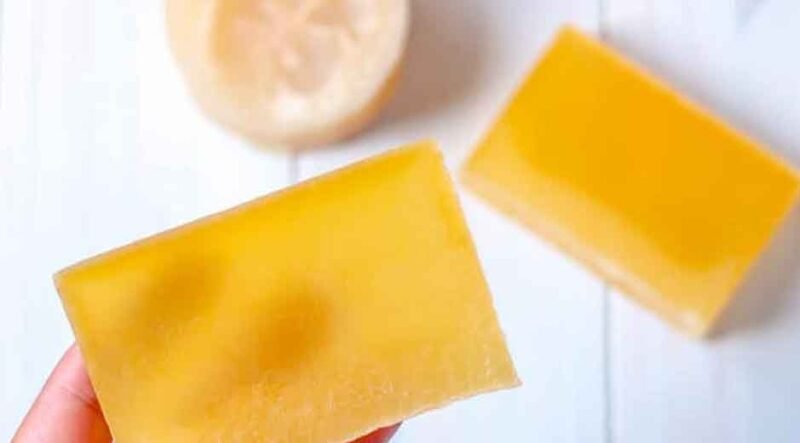Glycerin soap is a natural moisturizer that helps to attract and retain moisture on the skin. It can be clear or slightly translucent and is valued for its gentle cleaning properties. Here are some of the benefits of glycerin soap and how to make it using different soap making supplies:
Benefits of Using Glycerin Soap
Glycerin soap has several advantages depending on its chemical composition and the production process. Glycerin soap removes dirt on the skin without over-stripping the natural oils. A genuine glycerin soap retains the skin’s moisture, making it gentle enough for daily use. The absence of unnecessary additives and the presence of moisturizing agents make this soap suitable for normal and sensitive skin types. It’s also suitable for use in facial care, body wash, and hand-washing soaps.
Glycerin soap can be used as a base that can be further modified to suit specific cleansing applications. Additives blend into the soap without compromising its structure, allowing soap makers to customize their products. Soap makers may add natural ingredients like oatmeal to support the soap’s gentle scrubbing properties. Adding shea butter to glycerin soap adds a moisturizing effect, and essential oils offer unique scents. The additives a soap maker uses depend on the customers’ needs or the purpose of the formulation.
Materials Needed for Glycerin Soap
The process of making glycerin soap starts with choosing the soap base ingredients. There are many clear melt-and-pour glycerin soap bases that can be purchased from soap making suppliers. These bases are easy to work with and have no smell, making them suitable for further modification. Supplementary materials include natural colorants, fragrance oils, essential oils, and soap molds.
Selecting high-quality additives that are free from synthetic fillers and heavy stabilizers confirms that the final product will remain clear and functionally pure. Silicone molds are useful for soaps because they can be easily peeled off once the soap has hardened, and this prevents cracking. Buying bulk soap making supplies enables artisans to establish standardized production procedures while confirming that the ingredients align with the desired product characteristics.
Process of Making Glycerin Soap
To start producing glycerin soap, artisans cut the soap base into small pieces to confirm that it melts evenly. They melt the soap base using a double boiler or a microwaveable bowl. Avoiding excessive heat during melting helps prevent cloudiness and product degradation. Additives may be incorporated once the base in a liquid form. Adding fragrance oils in moderation keeps the formula’s scent from being too strong. Gradually stirring in natural pigments helps prevent oversaturation and allows the solution to remain translucent.
Powdered additives, such as dried herbs, botanicals, or mild exfoliants, should be distributed evenly to prevent clumping within the mold. The prepared mixture can then be poured into clean and dry molds. Even pouring techniques help prevent the formation of air bubbles, resulting in a smooth final product. After pouring, artisans allow the soap to cool and harden without any interference. This process may take several hours under standard temperature conditions. After the soap has set, soap makers carefully remove it from the molds.
Options for Customizing Glycerin Soap
Soap customization allows artisans to produce glycerin soap with specific visual and functional features. Additives like aloe vera gel can improve the soap’s moisturizing effect, while activated charcoal adds gentle detoxification benefits. Natural pigments from plants or mica powders can be used to achieve visual designs without adding unwanted chemicals. Lavender, peppermint, or eucalyptus are examples of essential oils that give the product a pleasant, therapeutic smell. Using additives that are appropriate for soap making promotes ingredient compatibility and reduces the chances of the additives destabilizing the glycerin base. Purchasing pre-measured fragrance oils or color blocks that are suitable for melt-and-pour bases makes it easier to achieve color and fragrance uniformity across multiple batches.
Purchase Quality Soap Making Supplies
If you want to produce high-quality glycerin soap, purchase bases, additives, and equipment from a supplier that carries quality products. Working with a supplier that provides a full range of soap making products, such as melt-and-pour bases, essential oils, natural colorants, and soap molds, helps you simplify your production process. Contact a soap making product supplier today to learn more about their inventory and purchase high-quality materials.








